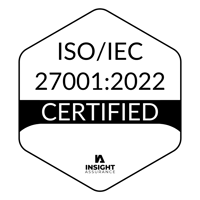
All too often benefit brokers deliver impersonal service and few choices for benefit plans. Points of service get muddled and handled by many points-of-contact, and ultimately HR directors are left fending for their employees themselves.
With her 40+ years in the benefits industry working as both a broker and carrier director, benefits expert, Anita Wasserbuger, gives a ten-point checklist that every HR director should consider during benefits renewal season.
1. Expect fantastic service. If your current benefits provider isn’t doing this now, don’t wait to shop around until renewal when they may suddenly become more attentive to keep your accounts.
“Calls should be returned within less than 24-hours. You should never feel like a bother. And you should be able to reach a person with a real number that is familiar with your plans and groups, not a call-center.”
2. Expect receiving updated information and access to resources. You should have access to the latest market place news as it applies to your insurance carriers, information on rates, providers, and benefits enhancements. Your broker should proactively contact you with information if it affects any aspect of your group benefits. Your broker should explain how healthcare reform might affect your benefits and employees.
3. Expect an advocate. Your broker should proactively contact you regarding any outstanding claims. The appeal process should be explained and followed through to completion and satisfaction of the employer/employee.
4. Expect transparency. You should know what your organization is paying for – what fees are being charge for account administration? Are you being charged admin fees per group, and if so, what are those fees? What’s in the margin? Brokers should be open and honest about where your organization’s funds are going.
5. Expect access. Know how your broker works within the larger context of the firm. Where does your broker fall within the hierarchy? If there are issues with your broker, do you have access to management t? Does the broker work with a team that oversees your accounts, or are they simply a point-of-sales?
6. Expect compliance support. Your broker should be educated in legal compliance issues and support your organization in meeting state and federal compliance.
7. Expect listening. Your broker should always listen to what your organization needs before suggesting any kind of benefits package. Commission and alliance-based biases should not come into play when your broker shops for a benefits package for your organization.
8. Expect industry-niche support. There are a lot benefits brokerage firms out there – and everyday smaller firms are popping up serving niche-specific industries. The smaller firms may be able to offer additional services that will benefit your organization, plus they may offer more personalized service and industry-specific knowledge.
9. Expect choices. Your broker should offer plans with a variety of carriers, and be willing to shop around. If the carrier and brokerage have alliances, then they should make this explicit to member organizations.
10. Expect custom-created plans. Your broker should go out of their way to custom-create exactly what your organization needs. If they can’t or won’t do this, it’s time to shop around!

.png?width=1501&name=Nonstop_Logo-22-Horizontal%20(2).png)


